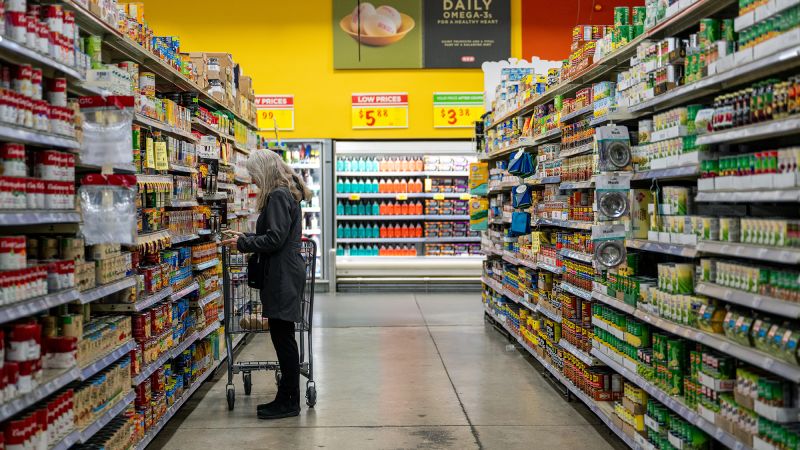
The Economic Storm Clouds Gather: A Nation’s Confidence Crumbles
The economic winds have shifted, and the news isn’t good. Consumer confidence, a crucial indicator of the overall health of the economy, has plummeted to its lowest point since January 2021. This sharp decline reflects a growing unease among Americans about the future, painting a picture of a nation increasingly anxious about its financial well-being.
What’s driving this dramatic fall? Several factors are at play, creating a perfect storm of economic uncertainty. Perhaps the most significant contributor is the escalating fear of inflation. The rising cost of goods and services is impacting households across the country, leaving many feeling the pinch and struggling to make ends meet. This isn’t just a temporary blip; the expectation of persistently higher inflation is deeply ingrained, further eroding consumer confidence.
Adding fuel to the fire is a growing sense that a recession is on the horizon. More and more Americans are predicting an economic downturn, a sentiment that’s particularly unsettling given the current economic climate. This fear, whether justified or not, is a powerful force that can stifle spending and investment, leading to a self-fulfilling prophecy.
The outlook for the future is bleak, with expectations for future economic conditions at a twelve-year low. This long-term pessimism suggests that the current anxieties are not merely temporary concerns but reflect a deeper-seated unease about the overall trajectory of the economy. Businesses, too, are feeling the pressure, leading to uncertainty in hiring and investment decisions. This lack of confidence creates a vicious cycle, further dampening economic growth.
While various factors contribute to this economic downturn, the impact on everyday Americans is undeniable. Families are struggling to balance their budgets, facing rising costs for essentials like food, housing, and transportation. This financial strain leads to increased stress and uncertainty, impacting not only personal finances but also overall mental well-being.
The political climate also plays a significant role in shaping consumer sentiment. Economic policies and their impact on the lives of ordinary citizens are closely scrutinized. Uncertainty regarding the direction of future policies can further destabilize consumer confidence, as individuals and businesses remain hesitant to make long-term commitments in the face of unpredictable regulatory environments.
The situation demands a multifaceted approach. Addressing inflation effectively is paramount. This may involve a range of strategies, from targeted fiscal measures to monetary policy adjustments. Simultaneously, bolstering consumer confidence requires clear communication and transparent policy decisions. Addressing the anxieties surrounding a potential recession will require a comprehensive plan that instills a sense of stability and security.
In conclusion, the current state of consumer confidence is a serious cause for concern, reflecting a confluence of economic and political factors. Addressing this issue requires a collaborative effort from policymakers, businesses, and individuals alike. Only through thoughtful planning and decisive action can we hope to navigate these economic challenges and restore a sense of stability and optimism for the future. The road ahead is uncertain, but decisive action is crucial to avoid further economic deterioration.



Leave a Reply